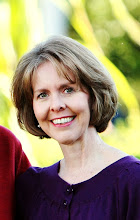An online "classmate" and I attended the recent Medieval and Renaissance Studies Conference hosted by New College of Florida in Sarasota. How ironic that a relatively "new" college (the Florida system's liberal arts honors college) be the locus of dozens of medieval historians from around the world, all concerned with events that happened centuries ago!

For Rachel and me, it was our first exposure to the world of historical scholarship personnified in the scholars around us who've devoted their lives to the study and teaching of things medieval and Renaissance -- art, architecture, political and social and intellectual history.
Besides the sessions themselves, I enjoyed the whole experience of witnessing the "scholarly conversation" I'd heard about. A few observations:
- The "conversation" can be a lively back-and-forth, but always respectful and good humored even when one disagrees;
- The "conversation" never ends -- each question answered begs a further question for future research;
- The scholarly microscope dictates a narrow focus. No one admits to having all the answers, or having expertise beyond their area;
- Presentation is everything! Seemingly dull topics were brought to life with engaging, animated delivery; the most intriguing looking topics were not immune from the ill effects of lifeless, mumbled delivery;
- Most startling of all -- tutti parlano italiano! As an admitted language nerd who'd studied Italian, I expected to be among the few in one session to understand the presenter's reading passages from primary sources in Italian. To my amazement the entire room appeared to understand the gist of the reading! Another awestruck moment when I appreciated the lengths a true historian will go to -- learning another language -- to unlock the secrets of their research.
It was difficult to choose from the varied menu of sessions, but I found myself learning about the role of medieval women as wives and mothers in "From Annunciation to Visitation at Reims Cathedral", figures of Eve in Renaissance Italy ("The Naked, the Nude, and Downright Unfeminine"), and the depth of meaning conveyed by the depiction of fabric in Renaissance painting ("Savoldo's Magdalen and the Veil"), among others.



No comments:
Post a Comment